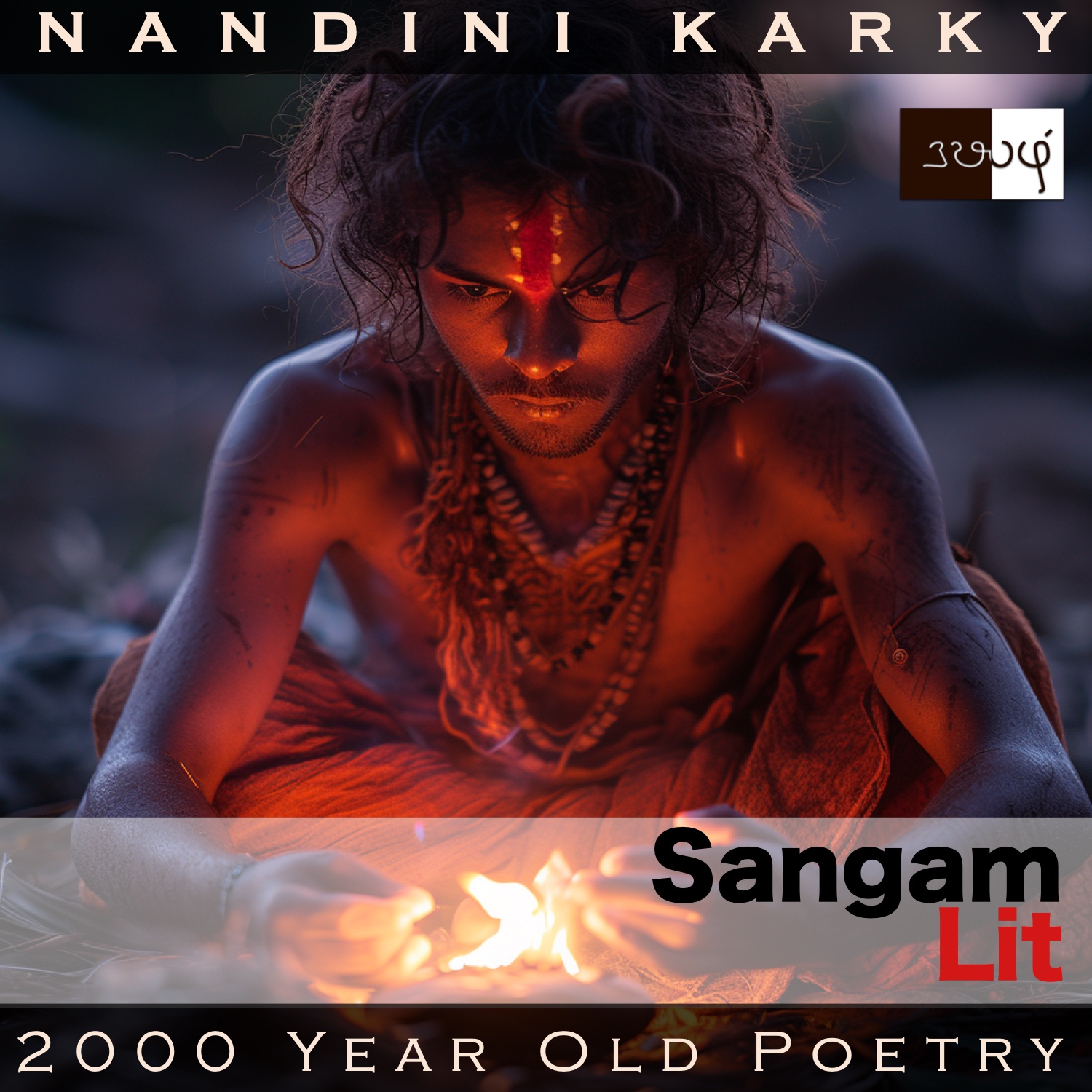Podcast: Play in new window | Download
Subscribe: Apple Podcasts | Spotify | Amazon Music | Android | iHeartRadio | TuneIn | RSS | More
In this episode, we perceive how a leader faces different circumstances, as depicted in Sangam Literary work, Puranaanooru 331, penned by the poet Uraiyoor Muthukoothanaar. Set in the category of ‘Vaagai Thinai’ or ‘Victory’, the verse sketches striking similes to convey the nature of a leader’s generosity.

கல் அறுத்து இயற்றிய வல் உவர்க் கூவல்,
வில் ஏர் வாழ்க்கை, சீறூர் மதவலி
நனி நல்கூர்ந்தனன்ஆயினும், பனி மிக,
புல்லென் மாலைச் சிறு தீ ஞெலியும்
கல்லா இடையன் போல, குறிப்பின்
இல்லது படைக்கவும் வல்லன்; உள்ளது
தவச் சிறிது ஆயினும் மிகப் பலர் என்னாள்,
நீள் நெடும் பந்தர் ஊண் முறை ஊட்டும்
இல் பொலி மகடூஉப் போல, சிற் சில
வரிசையின் அளிக்கவும் வல்லன்; உரிதினின்
காவல் மன்னர் கடைமுகத்து உகுக்கும்
போகு பலி வெண் சோறு போலத்
தூவவும் வல்லன், அவன் தூவுங்காலே.
A structured song on being generous! The poet’s words can be translated as follows:
“With a saltwater well built by breaking hard stony ground, a life that depends on one’s bow and arrow, was the small town of the strong and good man. Even though so poor, in a cold and dull evening, akin to how an uneducated shepherd conjures a small flame, if needed he can create from nothing too; When what he has is very little, like a wife who lights up a home, who does not think there are too many to serve, but instead, under the long and winding canopy, she feeds them in an orderly manner, he knows how to share and give according to each person’s merit. And when the time is right and he has plenty to offer, he is capable of showering copious white rice given as endless offerings at the front door of the great kings!”
Let’s delve into the layers of this verse. The poet starts by describing the town of this leader, by saying the well there was built with great effort by breaking the stony soil and inside all they could find was brackish water, and this is to contrast it with farmland towns, where rivers flow, and there’s no scarcity of water whatsoever. Next, the poet talks about how the life of the people there depends on the bow and arrow, meaning they have to hunt for their sustenance and it’s not a place where food crops are raised and stored in plenty. After portraying the leader’s town as a place of scanty means, the poet says, however the leader was one, who was someone brave and honourable.
The poet then brings before our eyes a cold evening in the forests, and suddenly, seemingly out of nowhere, a shepherd lights a small flame. Just like that, this leader too can make sure he finds something to give even if he has nothing at all, connects the poet. After this, the poet moves to the next level, where the leader has just a little to give. For this he brings forth the situation of the lady of a house, who has to feed a huge group of people at her home, and how, without feeling any qualms, she thoughtfully shares and gives to all of them. Likewise, the leader too knows to share what little he has, and distribute meritoriously to those who come to his door, the poet says. And finally, in the best case scenario, when it’s a prosperous time for this leader, just like how great kings give out cooked white rice day in and day out, at their doors, this leader too would shower without a thought on those who come to him, the poet concludes.
The verse seems to imply that no matter where a leader stands in life, he is duty bound to be generous. The striking element here is the depiction of the sequence of cuts involving the inventive shepherd, the resourceful wife and the prosperous king in a neatly edited presentation to convey what a leader would do when there’s nothing, there’s little and there’s plenty!




Share your thoughts...